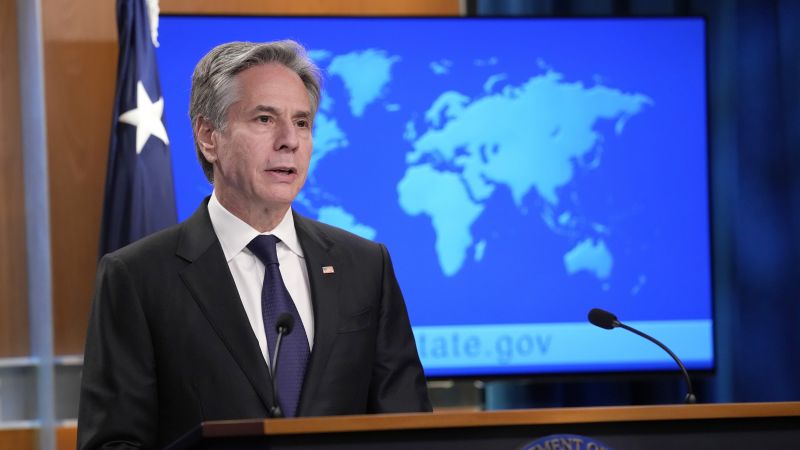
New US strategy looks to blunt Russian and Chinese influence in cyberspace
CNN
The US State Department on Monday plans to release an ambitious new cybersecurity strategy that seeks to curb Russia and China’s digital influence in the developing world and blunt those countries’ alleged efforts to interfere in elections.
The US State Department on Monday plans to release an ambitious new cybersecurity strategy that seeks to curb Russia and China’s digital influence in the developing world and blunt those countries’ alleged efforts to interfere in elections. With roughly half of the world’s population holding elections in 2024, their vulnerability to “cyber-enabled interference” is “particularly acute” and requires the US to continuously expose hackers and propagandists trying to undermine confidence in democracies, says the strategy, which CNN has reviewed. “We have communicated and will continue to communicate to Russia and to China that we view interference in our democratic processes in the United States as absolutely unacceptable,” Nate Fick, the State Department’s top cyber diplomat, said in an interview. “Secretary [Antony] Blinken has said it, and I have said it.” Fick accompanied Blinken on a trip to China last month, where Blinken told CNN that the US has seen evidence of Chinese attempts to “influence and arguably interfere” with the upcoming US elections. The new State Department strategy lays out principles that US diplomats will try to use to rally support for implementing tech policies and isolating autocratic regimes that control the flow of information. Blinken is set to announce the new strategy at the RSA Conference in San Francisco, one of the world’s biggest tech forums. A key premise of the strategy is that economies and democracies need cybersecurity to thrive. A catastrophic ransomware attack, for example, can hobble an economy. A government can use phone-hacking spyware to put dissidents in jail.

More photos from Epstein’s estate released by House Democrats as deadline to release DOJ files looms
Democrats on the House Oversight Committee released photos from Jeffrey Epstein’s estate Thursday — the latest in a series of intermittent disclosures that have fueled significant political intrigue in recent weeks about who may have been associated with the convicted sex offender.












